Irving Berlin

Composer • Songwriter
Birth Date: May 11, 1888
Death Date: September 22, 1989 — 101 years old
Birth Place: Mogilev, Russian Empire
Undeniably the most successful songwriter of the 20th century, Irving Berlin gained legendary status with a vast catalogue of Broadway hits and Hollywood showstoppers, all which aimed to reach the heart of the average American. Incredibly, Berlin couldn't read music and only played the piano in one key, but his uncomplicated and direct compositions instantly struck a chord with mainstream audiences, dominating both stage and screen for nearly four decades. A significant contributor to the Great American Songbook, Berlin's work has also topped the charts on 25 separate occasions, received eight Academy Award nominations, and helped to raise the spirit in his adopted homeland during two world wars.
Born Israel Isidore Berlin near Mogilev, Russia in 1888, Berlin emigrated to New York City with his family aged five. Following his father's death in 1901, he took to the streets to help support his mother and eight siblings with various odd jobs before eventually becoming a singing waiter. Having taught himself to play the piano, Berlin then wrote his first song, "Marie From Sunny Italy," in 1907 and a year later began collaborating with songwriters Edgar Leslie and George A. Whiting at a saloon in the Union Square neighborhood.
While in 1909, he achieved his first big break when he was hired as a staff lyricist for the Ted Snyder Company. Described by George Gershwin as "the first real American musical work, " 1911's "Alexander's Ragtime Band" helped to establish Berlin as a major Tin Pan Alley talent and was followed by his first complete score, "Watch Your Step," his first ballad, "When I Lost You" - a million-seller inspired by the tragic death of his first wife Dorothy Goetz - and a number of songs capitalizing on the various dance crazes of the era. Such was his esteemed reputation that in 1917, he was drafted into the army: not to fight, but to write patriotic songs and compose an all-soldier revue, "Yip Yip Yaphank," that would later be transferred to Broadway.
On his return to New York, he teamed up with producer Sam H. Harris to construct the Music Box Theater, the first Broadway house built to accommodate the works of a single songwriter, and made his film composer debut on "The Toll Of The Sea" (1922) before entering arguably the most prolific and successful phase of his career. Indeed, as well as scoring two editions of the Ziegfeld Follies and four Music Box revues, Berlin spent the 1920s penning hit after hit, from the number one ballad "What'll I Do" (later recorded by Frank Sinatra and Nat King Cole) to future Marilyn Monroe favorite "Lazy" to dedications to his second wife Ellin Mackay ("Always") and his first daughter ("Blue Skies").
After the latter appeared in the very first feature sound film "The Jazz Singer" (1927), Berlin also began to establish himself in Hollywood with a series of light romantic musicals, typically starring performers like Fred Astaire, Ginger Rogers, and Judy Garland, including "Top Hat" (1935), "On The Avenue" (1937), and "Gold Diggers In Paris" (1938). But he achieved his biggest hit with "Holiday Inn" (1942) and more notably, the Bing Crosby-sung number "White Christmas," which not only gave Berlin his first and only Academy Award but also went on to become one of the best-selling and most recorded songs in history.
Berlin also spent much of the same period in patriotic mode, composing several songs for various government agencies during the Second World War and producing a stage show, "This Is The Army," which he toured around international military bases for three years, receiving a Medal of Merit from President Harry S. Truman for his efforts. His "God Bless America," a song penned in 1918 but only unveiled for the 20th anniversary of Armistice Day, quickly became adopted as the country's second national anthem.
Invited by Rodgers and Hammerstein to take over composing duties from the late Jerome Kern on "Annie Get Your Gun," Berlin then scored one of his biggest hits with the hillbilly musical and its signature tune, "There's No Business Like Show Business," in particular. Following two more Hollywood ventures in "Blue Skies" (1946) and "Easter Parade" (1948), Berlin returned to the stage, firstly with the poorly-received "Miss Liberty" and then with the return-to-form political satire, "Call Me Madam," which landed him a Tony Award for Best Score.
Berlin remained inactive for most of the next decade and after making a brief Broadway comeback in 1962 with the respectable but unspectacular "Mr. President," officially announced his retirement. But he continued to be showered with accolades, receiving a Grammy Lifetime Achievement Award in 1968, a place in the Songwriters Hall Of Fame in 1970, and the Presidential Medal of Freedom in 1977. Berlin died from natural causes at the age of 101 in 1989, leaving behind a body of work that remains unmatched by any other songwriter.
Credits

ARD Klassik

The Best of The Ed Sullivan Show

Golden Times: Thomas Hampson and The Philharmonics

Stardust: Cento anni di Broadway

BR-Klassik

The Deer HunterStream
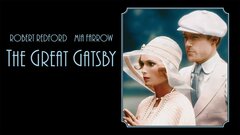
The Great GatsbyStream
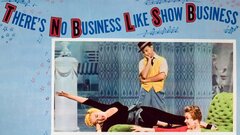
There's No Business Like Show BusinessStream

Easter ParadeStream
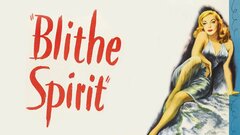
Blithe SpiritStream
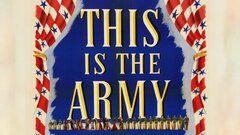
This Is the ArmyStream

Holiday InnStream
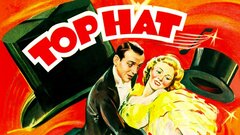
Top HatStream

Hello Pop

Glorifying the American Girl










